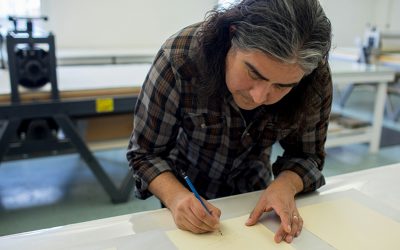Musicology Colloquium
The University of New Mexico Department of Music and The Latin American and Iberian Institute
Thursday April 2, 2020
2:00-3:30pm
Latin American and Iberian Institute Conference Room
This talk will consider performances and recordings by singer Linda Ronstadt to propose what I refer to as her Americanish musical songbook. The suffix “ish” here intends to accentuate the “somewhat” or “to some extent” of “American” that Ronstadt—Tucson born and raised—lived and sonically imagined through her extraordinary musical career.
Deborah R. Vargas is Associate Professor and The Henry Rutgers Term Chair in Comparative Sexuality, Gender, and Race in the Department of Women’s, Gender, and Sexuality Studies at Rutgers University. Vargas is currently at work on two manuscripts, “Brown Soul: On Blackness and the Cultural Politics of Chicanidad” and “Americanish: Linda Ronstadt’s Brown Sound.” Vargas has contributed a number of oral histories with Chicana singers to the Smithsonian Institute’s Latino Music Oral History Project and is a member of the editorial boards of Women and Music: A Journal of Gender and Culture and Latino Studies.
Jacobsen signs pre-completion contract for “The Creative Ethnographer’s Notebook”
Jacobsen signs pre-completion contract for "The Creative Ethnographer's Notebook" (co-authored with Melisa Cahnmann-Taylor) a book for artists, ethnographers and qualitative researchers. How and when do anthropologists, educators, sociologists and other social...
Pulitzer winning alumnus Raven Chacon to debut new composition, perform
Pulitzer winning alumnus Raven Chacon to debut new composition, perform Tickets available for performances in Santa Fe, Albuquerque By Mary Beth King August 11, 2022 Pulitzer Prize winning Diné composer and sound artist Raven Chacon, who earned his Bachelor of Arts...
The American Prize in Vocal Performance—Women in Art Song and Oratorio, 2022 Winner
The American Prize National Nonprofit Competitions in the Performing Arts, David (Volosin) Katz, founder and chief judge, is honored to announce the winners, runners-up, and honorable mentions of The American Prize in Vocal Performance—women in art song and oratorio,...



